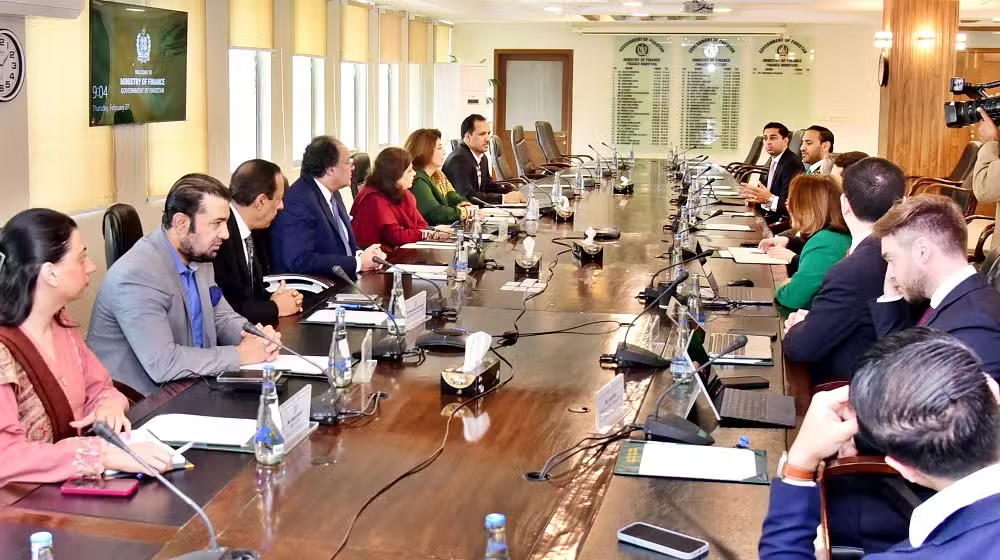Islamabad, Feb 28: A high-level delegation from Jefferies Investors, led by Alia Moubayed, met with Pakistan’s Federal Minister for Finance, Senator Muhammad Aurangzeb, in Islamabad to discuss the country’s economic landscape and investment prospects. The delegation included key representatives from prominent global investment firms such as HBK Investment Management, Barings, Ashmore, Fidelity, Jefferies, and Ktrade Securities. Their visit underscored growing investor interest in Pakistan’s evolving economic framework and ongoing reforms.
During the meeting, the delegation invited the finance minister to the Pakistani Investors Day in London, scheduled for May 2025, an initiative aimed at bolstering international investor confidence and deepening engagement with global financial players. The discussions focused on Pakistan’s macroeconomic stabilization, with the finance minister outlining the government’s strategic reform agenda covering taxation, energy, privatization, and state-owned enterprises (SOEs). He emphasized that the economy had reached a stable footing and detailed measures being undertaken to enhance fiscal discipline, revenue generation, and investment facilitation.
A major highlight of the discussion was Pakistan’s comprehensive tax reforms, particularly the activation of the National Tax Council to improve federal-provincial tax coordination. The finance minister highlighted efforts to expand the tax base, bringing wholesale, retail, and real estate sectors into formal taxation.
Additionally, he discussed the implementation of the agricultural income tax, which has been approved by all four provinces and is set to take effect from July 1, 2025. In a key structural shift, tax policy has been moved from the Federal Board of Revenue (FBR) to the Finance Division, ensuring a more strategic and policy-driven approach.
The meeting also touched on fiscal consolidation and expenditure control as part of Pakistan’s broader economic restructuring. The finance minister reaffirmed the government’s commitment to export-led growth, emphasizing the need for all sectors to contribute to a long-term structural transformation of the economy. Capital market reforms and investment facilitation were also discussed, with an update on Pakistan’s Panda Bond issuance, a key part of the country’s external financing strategy.
Beyond financial measures, the minister highlighted critical long-term challenges, including population growth and climate change, and stressed the importance of capacity-building support from international stakeholders. The visiting delegation acknowledged Pakistan’s economic progress and expressed interest in investment opportunities in capital markets, infrastructure, and emerging sectors.
The meeting concluded with a shared commitment to strengthening economic ties and fostering greater collaboration in financial markets, reaffirming Pakistan’s commitment to creating an environment conducive to foreign investment.









